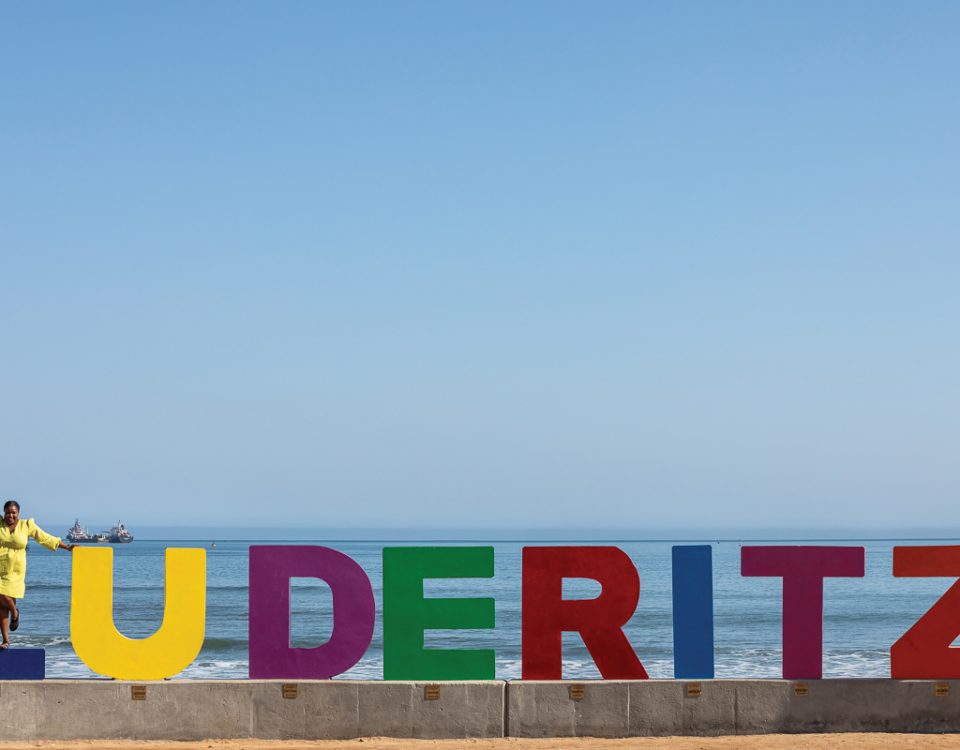Windhoek| Meet The Friendly Faces of Olive Exclusive
March 19, 2015Indigenous Plants of Namibia | !nara
March 24, 2015Compiled Sanet van Zijl
On 21 March Namibia will be celebrating a milestone of 25 years of independence, peace, stability and freedom.
Namibia’s Battle for Independence:
Namibia was a German territory, known as South West Africa, which was captured by South Africa in World War I. Subsequently South Africa received a League of Nations mandate to administer the territory. In 1966 the United Nations General Assembly, successor to the League of Nations, revoked South Africa’s mandate to govern South-West African territory and declared that it was under direct UN administration. South Africa refused to recognize this resolution and continued to administer the territory de facto.
On 26 August 1966, SWAPO guerrilla forces launched an attack against the South African Defense Force at Omugulugwombashe. It was the first armed battle in the Namibian struggle for independence. In commemoration of the day, 26 August is a public holiday in Namibia. It is recognised by the United Nations as Namibia Day but Namibians refer to it as Heroes’ Day.
The war ended with the New York Accords signed on 22 December 1988, which also ended direct involvement of foreign troops in the Angolan Civil War. Independence came to Namibia on 21 March 1990 following elections, which saw SWAPO win 55 of 72 seats in the National Assembly of Namibia, enabling them to form a national government.
Present-day Namibia:
Recently our outgoing president, Hifikepunye Pohamba, was awarded the 2014 Mo Ibrahim Leadership Prize, which recognizes and celebrates African leaders who have developed their countries, lifted people out of poverty and paved the way for sustainable and equitable prosperity. Our newly elected president, Dr Hage Geingob, will be inaugurated on Independence Day.
The capital of Namibia is Windhoek. Its government consists of a multi-party parliament with a democratic constitution. Namibians have complete freedom of religion and about 90% of the population is Christian. The country is ranked in the top twenty countries in the world that uphold press freedom.
Namibia has 14 vegetation zones, 120 species of trees, 200 endemic plant species and 100 plus species of lichen.
The main sectors of the economy are reliant on fishing, mining, tourism and agriculture. Agriculture is the biggest employer – 46% of the population.
Interesting facts about Namibia:
- It was the first country in the world to incorporate “Protection of the Environment” into its national constitution. This law protects around 15% of Namibia’s land area from commercial or agricultural development, and designates these areas as National Parks.
- In the 2014 elections, Namibia became one of the first African countries to commit to equal representation of men and women in parliament.
- Namibia is the only African country with a daily German newspaper, the Allgemeine Zeitung (“General Newspaper”), which was founded in 1916.
- Namibia was the first country to use dehorning to protect rhinos from poaching. Between 1989 and the early 1990s, dehorning coupled with rapid improvements in security and funding for anti-poaching was perceived by stakeholders to have contributed significantly to reducing poaching losses. In Namibia, not a single dehorned rhino was poached.
- Namibia is the first African nation and one of only few jurisdictions in the world, which successfully conducted a “National Money Laundering and Terrorism Financing Risk and Threat Assessment”. This assessment enabled Namibia to develop laws, policies and cause resource allocations to address and mitigate high risk money laundering and terrorism financing areas.
- It was the first African country to host Miss Universe – when it hosted the 1995 Miss Universe Pageant. Over 80 countries and territories participated in MU Namibia’95. The event was televised in over 60 nations in the world.
- It is the most arid country in sub-Sahara Africa, receiving on average less than 400mm of rain a year. Namibia also has no rivers that run year-round; they are ephemeral rivers that only run in the rainy season.
- It is home to the largest canyon in Africa – the Fish River Canyon. This canyon, formed approximately 500 million years ago, is situated along the lower reaches of the Fish River, and with a depth of up to 550 metres, it is the second largest canyon in the world.
- Namibia has one of the most productive fishing grounds in the world, due primarily to the presence of the Benguela current. Up-welling caused by the current brings nutrient rich waters up from the depths that stimulate the growth of microscopic marine organisms. These in turn support rich populations of fish, which form the basis of the marine fisheries sector.
- The only country named after a desert. “Namibia” comes from the word “Namib” which is of Nama origin and means “vast place”. The Namib Desert is one of the oldest and largest in the world, covering large swathes of Namibia and parts of Angola and South Africa.
- Namibia possesses some of the most stunning landscapes in Africa. This includes the “Sossusvlei”, a large salt and clay pan set amid red sand dunes that tower up to 200m above the valley floor. Then there are the rounded granite 700m peaks of the “Spitzkoppe towers”. It also boasts the “Skeleton coast” – a treacherous coastline full of rocks and sandy coastal shallows, which was a graveyard for ships and crew – hence the name.





1 Comment
I am curious to get out what blog means you are using? Im hanivg some littlesecurity problems with my latest website and Id like to obtain something more risk-without charge.Do you have any other suggestions? Hmm it looks just like your blog ate my firstcomment (it was super long) so I guess Ill just sumit up what I wrote and say, Im thoroughly enjoying your blog.I too am an aspiring blog blogger however Im still new tothe whole thing. Do you have any tips and hints for rookieblog writers? Id definitely appreciate it.